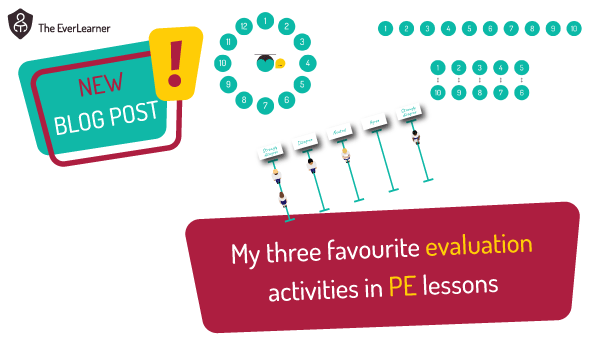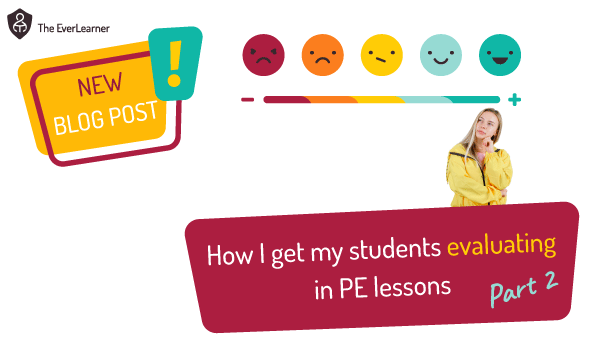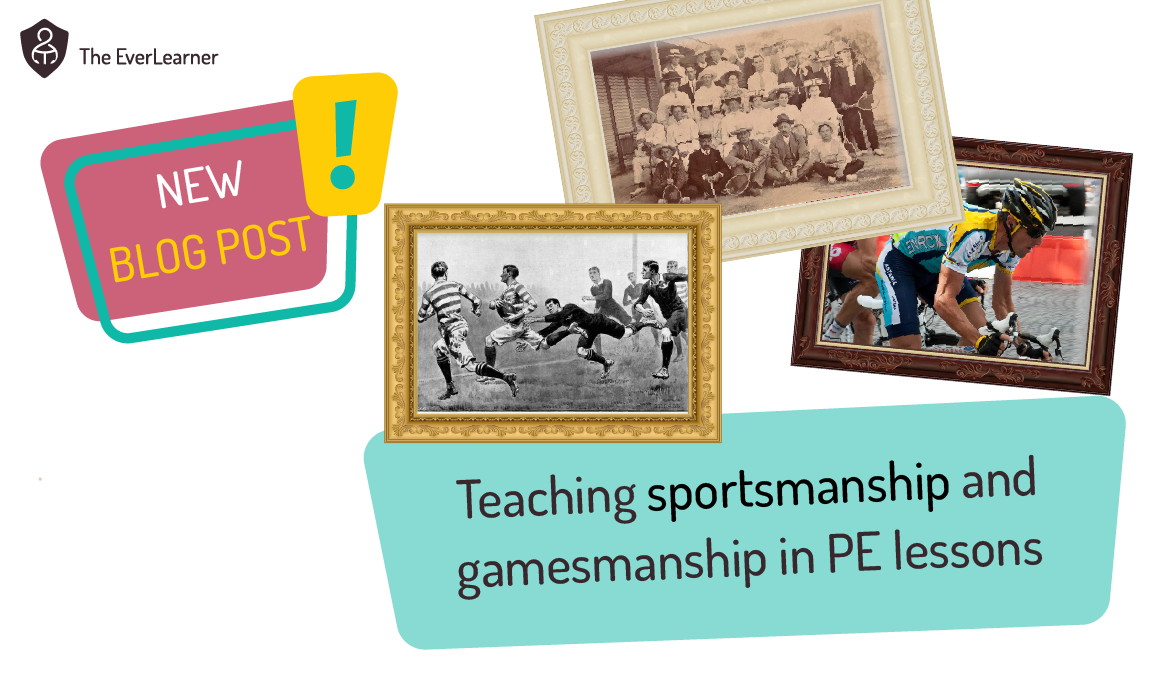How I get my students evaluating in PE lessons (Part 1)
This week, Part 1: Introduction to the “evaluate” skill in PE lessons. Released Wed 14th June 2023.
Next week, Part 2: Example lesson developing the “evaluate” skill in PE lessons. Released 21st June 2023.
I have taught thousands of GCSE and A-level PE lessons in my career. I have also taught almost every technical and vocational sport and PE course out there over the past twenty years. Throughout that time, I have gradually refined the way in which I encourage the learning of skills such as evaluating. PE teachers reading this post and the one to follow will know that being evaluative is a key skill for almost all PE and sport students. Whether they are answering evaluate questions in exams in order to achieve AO3 skills or using them in coursework writing in order to hit the distinction or distinction* level, your students need to be evaluative.
But I also believe that there is uncertainty in the PE teaching sector about how best to develop such skills and I am writing this article in order to support this process.
Please note, this post and the following one are not specifically related to extended writing in exams but it does influence these skills. If you are looking for support with extended writing, please choose one of these posts:
- Extended writing in GCSE PE (including specific resources for AQA, Edexcel and OCR)
- Extended writing in AQA A-level PE
- Extended writing in OCR A-level PE
So, let’s start here:
What is evaluating?
I am going to answer this initially and then refer you to some exam board definitions. In my experience, evaluating can be defined as:
The exam boards define evaluating as follows:
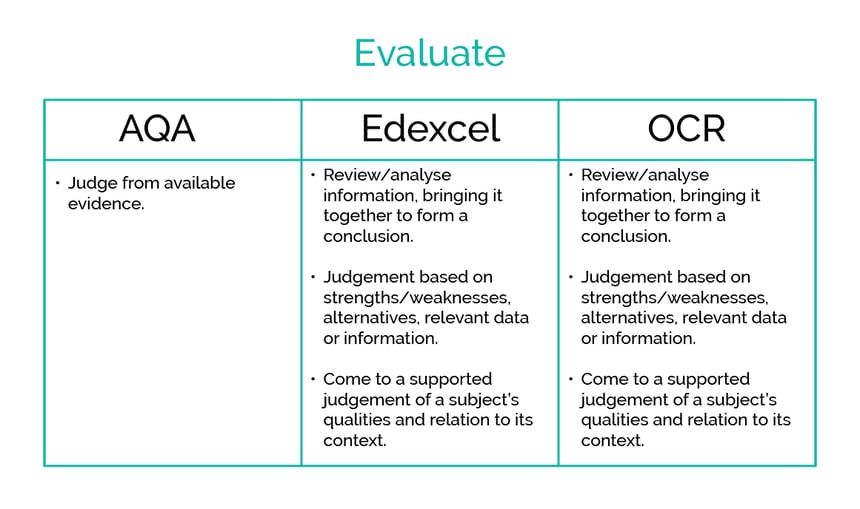
So, we have relative consistency. All three exam boards acknowledge the need to judge a concept and, in the latter two cases, make specific reference to conclusions. Therefore, I am to stick to my own definition as a general guide, which is:
If you take nothing else from this post other than the importance of this question, reading has been worth it. I urge all qualification-based PE teachers to consider this very question. I have asked myself it many times before and, below, you can see the nature of my solution.
In order to bring the response to life, I am going to pose a series of principles and then one single example of my work in this area.
Let’s start with principles:
Principle 1 : Evaluating is a skill.
Principle 2 : The evaluation skill can only be utilised if there is good-quality knowledge and understanding of the topic in question and the application that needs to be made.
Principle 3 : Evaluating is a behaviour and this behaviour occurs in a wider array of experiences, not simply writing evaluatively.
I am arguing that developing the ‘Evaluate’ skill involves student behaviours (principle 3) and that simply writing with an evaluative structure is not sufficient. I am stating this because I have experienced lots of PE learning where a session jumps from the teaching via slides, maybe a worksheet in between and then evaluative writing. I do not believe that this is a skill-focussed structure.
Therefore, this is what I am challenging:
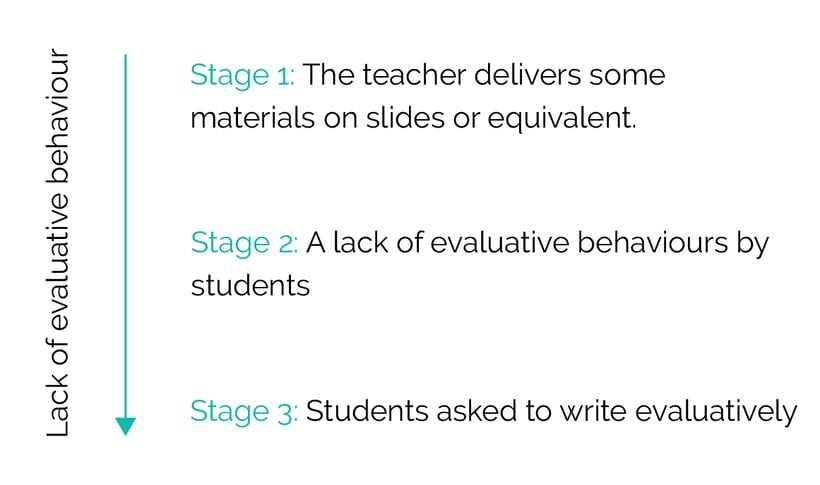 So, I am arguing there is a threshold moment in all skill-based lessons. Once knowledge has been acquired, evaluative behaviours need to occur and this must precede evaluative writing. For this reason, in Part 2, I am going to advocate for the following model in a skill-based lesson:
So, I am arguing there is a threshold moment in all skill-based lessons. Once knowledge has been acquired, evaluative behaviours need to occur and this must precede evaluative writing. For this reason, in Part 2, I am going to advocate for the following model in a skill-based lesson:
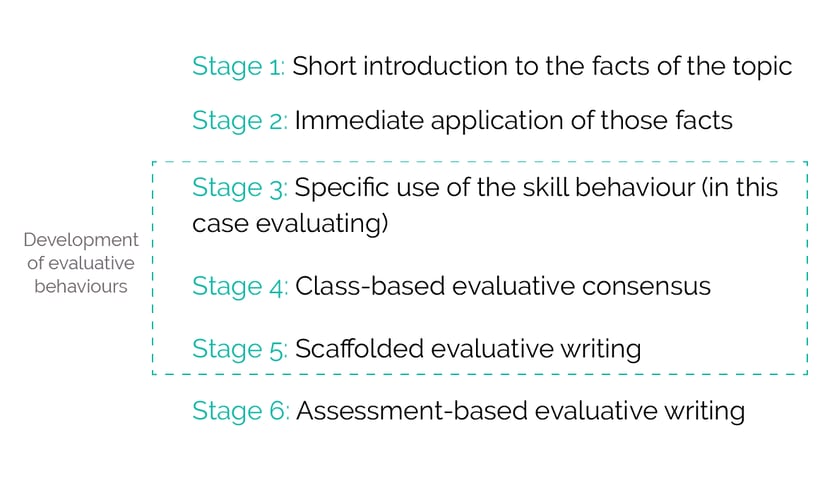 Now, what is written above is not a set of rules. Rather, it is a series of assumed experiences based on the three principles designated above. It is a framework and, in Part 2 of this post, I am going to detail one discrete lesson of mine that adheres to this framework so that you can see it in practice.
Now, what is written above is not a set of rules. Rather, it is a series of assumed experiences based on the three principles designated above. It is a framework and, in Part 2 of this post, I am going to detail one discrete lesson of mine that adheres to this framework so that you can see it in practice.
So, as I draw Part 1 to a close and with the intent of encouraging you to read Part 2 next week, I would like to ask you three questions:
- Which lessons that you teach would be well-served by having a clearer skills-focus?
- On your qualification and across the different papers of your qualification, which skills are the most important ones for your students to develop?
- How do you currently develop the evaluate skill in your students?
If you were able to reflect on these questions prior to next week’s post, I believe that you will find what I post intriguing.
Thank you for reading.
N.B. Part 2 will feature a full lesson plan with all resources for one, discrete lesson. The lesson that I have decided to focus on is as follows:
| Group | Year 12s |
| # of students | 19 |
| Course | OCR A-level PE |
| Paper | Paper 2 Psychological Factors |
| Topic | Guidance |
| Skill focus | Evaluate |
In preparation for that post, I wanted to detail some of the lesson’s structure in order to intrigue you:
| Pre-lesson |
Study guidance tutorial and make notes |
| Lesson starter | Guidance practical activity |
| Lesson instruction | 5 slides delivered (maximum of three minutes) |
| Skill development | Activity to develop the evaluate skill |
| Skill group consensus | Collation of the group’s evaluative responses |
| Interleaved quiz | 12 question interleaved test |
| Scaffolded writing | Group-based writing activity |
| Assessment-based writing | Individual writing activity in assessment mode |
So, there you have it. This is the lesson, a lesson I have taught for years, that I will be detailing next week. Join me on Wednesday 21st June for all the details and resource downloads.
Have a lovely day.
James
%20Text%20(Violet).png)
